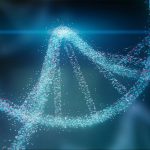What owning a cat does to your brain (and theirs)
Cats may have a reputation for independence, but emerging research suggests we share a unique connection with them—fueled by brain chemistry.
The main chemical involved...
Scientists pinpoint when life first colonized an ancient meteorite crater
A new study has revealed that life not only survives catastrophic meteorite impacts but can actually thrive in the craters they leave behind.
For the...
Blue, green, brown, or something in between – the science of eye color explained
You’re introduced to someone and your attention catches on their eyes.
They might be a rich, earthy brown, a pale blue, or the rare green...
Ancient mammoth microbes reveal the world’s oldest bacterial DNA
Scientists have made a remarkable discovery hidden within the remains of mammoths that roamed Earth more than a million years ago.
An international team led...
Life on Earth probably got some help from space
The greatest challenge facing astrobiologists is that there is only one planet known to us that has life.
Of all the bodies of the Solar...
These 165-million-year-old insects show early leaf mimicry strategies
Around 165 million years ago, some insects in what is now northeastern China developed an extraordinary trick: they evolved wings that looked almost identical...
Ghost sharks grow forehead teeth to help them mate, study finds
Deep in the ocean, there lives a strange group of fish called ghost sharks, or chimaeras, which are distant relatives of sharks and rays.
These...
One gene could explain why men and women’s immune systems react differently
Why do men and women often respond differently to the same infections, allergies, or treatments?
A new study suggests the answer may come down to...
Why your cells use a secret weapon to starve invaders
Most of us learned in school that mitochondria are the “powerhouses of the cell,” tiny structures that make the energy our bodies need.
But new...
Love in the dirt: How soil microbes might influence our emotions
Could the microbes living in soil have an impact on human emotions, relationships, and even feelings of love?
Scientists from Flinders University in Australia think...










